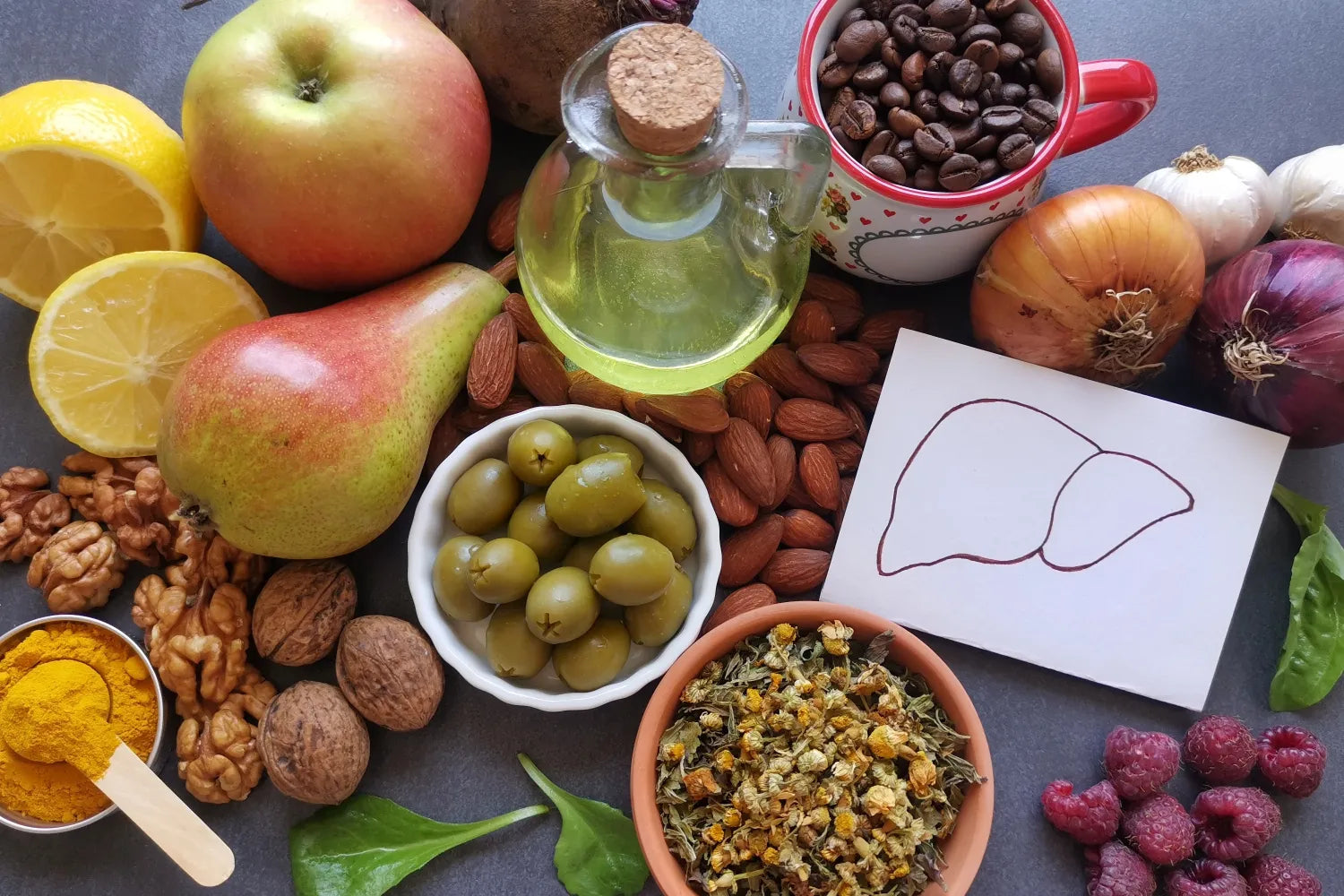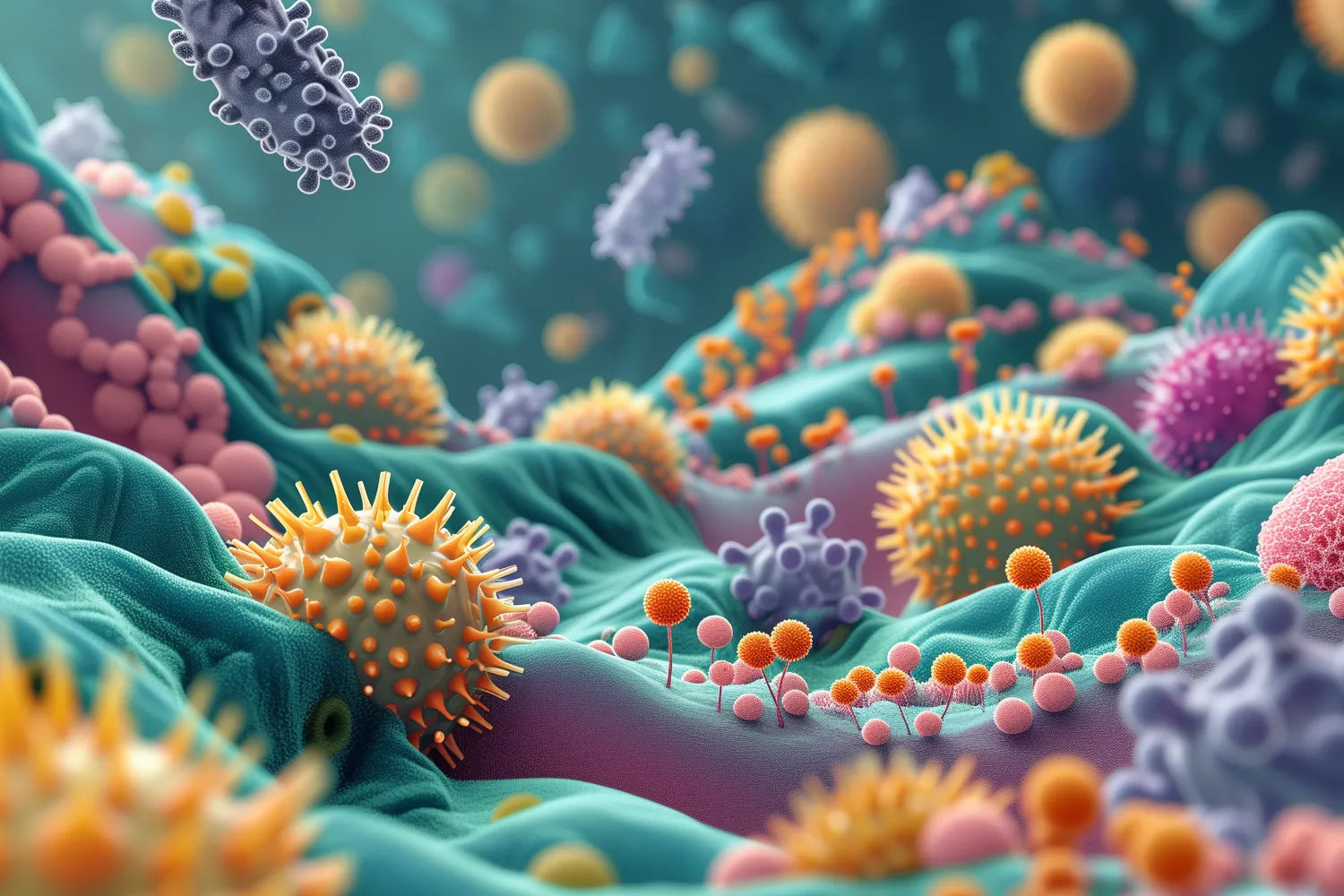
Dr. Eric Venn-Watson’s Highlights
The skin you had as a child glowed. It was fresh, new, and largely untouched by environmental stressors. No matter what you did to your skin, it looked healthy each day.
As you’ve gotten older, you might have noticed your skin looking a bit lackluster. What changed? It’s the same skin you’ve always had, and you probably take better care of it and invest more money on skin care products than you did as a child. Why and how has it lost its glow?
The skin changes as we get older. Combine these age-related changes with other factors like sun exposure and free radical damage, and it’s easy to understand why our skin looks a little less than radiant.
Understanding how to get back your glow starts with understanding a little bit about how your skin works.
The Science of the Skin
The largest organ on your body is amazing. It’s flexible and porous, yet sturdy and protective enough to guard your internal organs.
Your skin health depends on proper care and protection. Avoiding too much sun, ensuring it’s properly hydrated, and eating a balanced diet all play a role in keeping skin healthy. Two foundational building blocks of your skin, collagen and elastin, are important in keeping your skin looking healthy.
Collagen and Elastin
Collagen and elastin are proteins that make up many of the tissues in your body. From ligaments and tendons to the layers of your skin, these proteins are continually produced by your cells to keep your tissues and organs working properly.
Collagen helps keep your skin feeling plump and firm. When collagen begins to break down, skin may become thin and hollow. Fine lines may begin to appear as the underlying structure of the skin becomes weaker than it was in our youth.
Elastin is the material that gives your skin its elasticity. It’s what allows your skin to stretch and snap back into place. When elastin levels decline, elasticity declines, causing skin that sags and wrinkles.
Aging Skin Cells
As our skin cells age, they become weaker and more fragile. This fragility decreases their ability to function as well as they did when we were younger. Cell walls begin to deteriorate and mitochondrial function slows.
These factors happen as a natural part of aging, but additional damage from external stressors and lifestyle habits can also play a role in our skin looking dull and unhealthy.
Environment and Lifestyle Factors
Your skin is bombarded with potentially damaging elements everyday. From our own not-so-great lifestyle habits to environmental pollutants beyond our control, our skin fights hard to maintain health.
Free Radical Damage
Free radical damage causes damage to our cells and ages us at a faster rate than just time alone. Free radicals are unstable atoms (they only have one electron). To become stable, they need another electron. When they find another atom and steal its electron, the cell where the atom lives becomes damaged.
This damage causes the cell’s DNA to become corrupted, which can be passed on to daughter cells. The damage done by free radicals causes skin to lose its radiance, causes collagen and elastin production to wane, and results in skin that looks and feels older.
Free radicals can come from sources like the sun, cigarette smoke, and pollution.
Sun Exposure
The sun plays an important, two-sided role in our skin’s health. On one side, the sun is essential for us to remain healthy. It’s how our body creates vitamin D (which happens in the skin) and stimulates skin cell repair and regrowth.
On the other side, excess sun exposure can cause photoaging, or the development of fine lines, wrinkles, and sunspots. Additionally, exposure to UV rays is the highest risk factor for developing skin cancer.
To protect the skin and get back your glow, consider supplements that will nourish your skin cells and keep your skin better protected.
Six Supplements for Glowing Skin
If you want to take a supplement that promotes a healthy glow, look for ingredients that work synergistically with your skin to help increase its ability to function like it did in your youth. Here are six supplements that can help improve your skin from the inside out.
1. Vitamin E
Vitamin E is so popular it’s hard to find a skin care lotion or cream that doesn’t contain it. Vitamin E works well when applied topically because it has an emollient effect, which means it helps to fill in cracks, and condition and soften the skin.
Vitamin E also offers antioxidant protection. Antioxidants help protect the skin against free radicals, preventing oxidative stress and helping skin regenerate properly. When vitamin E is taken internally as a supplement, it helps stop the production of free radicals.
2. Vitamin D
Vitamin D is an essential vitamin your skin makes when it is exposed to the sun. Vitamin D is important to total health, but especially important for skin regrowth, rejuvenation, and repair.
Vitamin D helps protect the skin and helps synthesize calcium, which is imperative for skin repair. Vitamin D also regulates gut bacteria, which research shows plays a direct role in the health and stability of your skin.
Vitamin D deficiency and the development of melanoma also appear to be interrelated.
3. Collagen
Collagen can be taken in supplement form to support your skin health. Taking collagen helps supply your skin with additional collagen fibers, but also works to stimulate your skin’s own, natural collagen production.
Collagen helps keep your skin firm, full, and healthy and helps encourage cellular turnover.
4. Probiotics and Prebiotics
The gut-skin axis describes the relationship between your gut flora and your skin’s natural microbiome. Your skin microbiome consists of the healthy bacteria living on your skin that are essential for skin protection and wellness.
The health of your gut flora is directly connected to the health of your skin, and research shows that the gut flora is in constant communication with the bacteria on your skin. When your gut flora is unstable, it can cause your skin to have an immune response.
Taking probiotics can help ensure the healthy levels of bacteria in your gut are stable. Prebiotics are also a great option. Prebiotic fibers feed healthy bacteria and nourish them. Taking probiotics and prebiotics in combination with one another can significantly increase your gut and skin health.
5. Vitamin C
Vitamin C has long been hailed as the cure-all for colds, but vitamin C also has amazing benefits for your skin. Vitamin C is a skin brightener that can help support a visibly healthier skin tone. It also offers antioxidant protection to keep your skin safe from external stressors.
Vitamin C also plays a role in stimulating collagen production, increasing your skin’s overall youthful and healthy appearance.
Elevate your cells. Elevate your self.
Pentadecanoic Acid
Pentadecanoic acid (also known as C15:0) can help you get back your glowing skin by supporting your skin at the cellular level. An odd-chain, saturated fatty acid, this supplement digs into skin cells, strengthening their cell membranes to help keep them protected from oxidative stress.†*
C15:0 also helps promote increased mitochondrial function, which means your skin cells can operate more efficiently like they did when you were younger.†*
C15:0 not only supports your skin, it supports every cell in your body. The aging cells in our bodies can cause tissues, organs, and entire systems to weaken and become less functional. The result can be age-related illness, lackluster skin, and even feeling less energized than we once did.
By focusing on supporting cellular health, this fatty acid is the best way to give your cells a fighting chance to function stronger as you age.†*
C15:0 also supports healthy sleep, mood, metabolism, and immunity. By binding to PPAR receptors in your body that regulate these processes, C15:0 helps support them and make sure they’re functioning correctly.†*
C15:0 is best taken in supplement form. It’s only found in trace amounts in full-fat dairy products and some fish, and you’d have to consume a lot of those foods to get the daily amount of C15:0 you need.
Fatty15 is the once-a-day supplement that contains only FA15™ , the pure, vegan version of C15:0. This supplement is a great addition to your health stack and can help support your skin and body.†*
Healthy Skin, the Fatty Way
Healthy skin starts with your cells. If your skin cells aren’t healthy, your skin won’t look healthy and radiant. Take the only supplement that supports every cell in your body. Fatty15 gives you the ability to age on your own terms and keep the youthful skin you love, naturally.
Sources:
How does skin work? - InformedHealth.org - NCBI Bookshelf
Free Radicals and Extrinsic Skin Aging|NCBI
Vitamin D deficiency is associated with a worse prognosis in metastatic melanoma|NCBI
Eric Venn-Watson M.D.
CEO, Co-Founder
Senior Scientist, Co-Founder
Eric is a physician, U.S. Navy veteran, and Co-founder and COO of Seraphina Therapeutics. Eric served over 25 years as a Navy and Marine Corps physician, working with the special forces community to improve their health and fitness. Seraphina Therapeutics is a health and wellness company dedicated to advancing global health through the discovery of essential fatty acids and micronutrient therapeutics.
You May Also Like...
10 Foods Good for Your Liver: The Ultimate Guide
Your liver does a lot for you. If it had a voice of its own, it might ask you to eat more veggies and cut back on your Old Fashioneds. Unfortunately, the liver doesn’t receive a lot of attention until...
How To Improve Your Gut Microbiome: 6 Tips
Interested in how to improve your gut microbiome? We’ve got six tips to help your gut thrive and improve your overall digestion.


